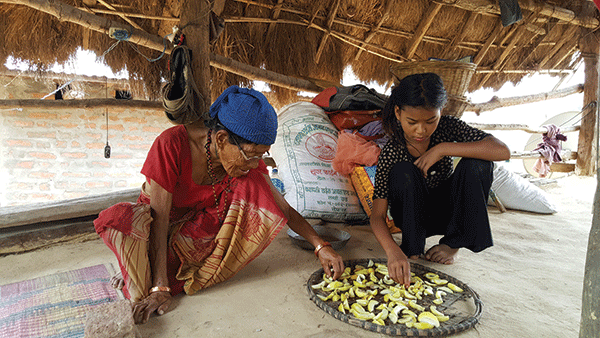“The key to success on the golf course is 80 % in the mind”– Greg Norman
You’re in trouble. It’s your turn to tee off and instead of seeing the lush fairway before you, all you see is the sand, the trees and the spectators watching your every move. The ability to stay calm has suddenly eluded you, and negative thoughts overwhelm. There is no way you can focus on the shot. The pressure to perform leads to anxiety, which doesn’t help either. Your breathing quickens and you can feel your heart riding up to your throat. You are suffering from performance stress.
Sadly, golf has always been too much a physical sport; the mental fortitude needed behind it never getting the attention it rightly deserves. Professional players, books and articles in golf magazines bombard players with instructions that teach the right ways to swing, put, chip and what not, basically covering all the techniques players need to be able to put the ball where they want. Yet, no golfer would deny the fact that golf is as much a mind sport as it is about being able to hit the ball the right way.
Golfers around the world spend countless hours practicing their swing and technique using the latest equipment to get an advantage. Good equipment helps, but not when players start to lose their focus after every tiny error or distraction and end up with a score much below their potential. What they have to understand is that they can improve only so much in the physical realm of the game. The rest depends on the mental conditioning, which affects the physical side.
“There comes a turning point when a golfer realizes that this mind side of golf is not about simple mind control. It dawns on the golfer that, in essence, there is a spiritual side to golf that guides from within,” says Vikram Jeet Singh Judge. To integrate the spiritual side of the game for better control on the course, he recently enrolled himself in The Spirit of Golf.
The Art of Living – Spirit of Golf is essentially the confluence of eastern ‘soul science’ with the western sports. It draws upon the wisdom and teachings shared by His Holiness Sri Sri Ravishankar. The workshop was conducted over a five-day retreat at the foothills of the Himalayas in the ancient forest of Gokarna, at the internationally acclaimed Le Meridien Kathmandu, Gokarna Forest Golf Resort & Spa. The participants were taught Sudarshan Kriya, a rhythmic breathing technique that takes one into deep states of rest and relaxation. They were also taught various yogic exercises and practical knowledge on understanding mind and emotion to help them to maintain their cool in the heat of the game. And who better to understand it than a golfer himself. Vikram Jeet Singh Judge, who says of his experience of the workshop as ‘wonderful’, has been playing for over two decades now. “I should have done it earlier,” he says. He has been a sportsman of very high standards and has played both amateur and professional level golf at world class tournaments. He knows how important it is to keep calm when things start to take a turn for the worse. “Anyone can play a great shot, or take a penalty for that matter but to perform under pressure, that’s different terrain altogether. You need mental resilience for that. What I learnt at the Spirit of Golf workshop is just that,” confides Vikram.
Apart from mental fortitude, the breathing exercises have also helped him a lot. “It helped me to cut back on drugs prescribed for my asthma,” he shares. Talking about medical conditions, another participant Dr. Natasha Grey voices similar feelings. She has seen extensive cases of ‘golfer’s elbow’ and other host of injuries related with the sport. “Injuries tend to occur when the players lose their focus and tend to drift from their immediate goals. Distractions make for a bad shot and most of the time shots taken under pressure lead to injuries,” says Dr. Grey. The rhythmic breathing exercise and yogic exercises taught at the workshops help the players to focus and teach to keep their mind from wandering. “The 5 day retreat was a gift for life,” she says enthusiastically, adding, “It really helped to recharge and rejuvenate my batteries. Now I’m ready to change the world!”
The quality of any golfer’s game is the reflection of the quality of the mind the player carries within. Undeniably, golf is a metaphor of life. “For me golf mirrors life. One day you’re winning, taking the best shots and winning competitions, and on another day you’re down at the dumps; just like life itself. The Art of Living teaches you to rise up on such occasions. It’s not just about golf, it’s all about life and living wisely,” concludes Vikram.
Today the Art of Living workshops have touched millions of people in almost 150 countries around the world. For golfers, other athletes and sportsmen, it brings a welcome change that enables them to uplift their game by enhancing alertness and awareness, heightening enthusiasm and creativity and reducing stress and anxiety. The results are most promising: An inner calm and an ability to face the most difficult challenges without flinching and losing one’s cool in the heat of the moment.
For more on the Spirit of Golf: www.thespiritofgolf.org
Ani Choying Drolma: Life Post Covid
Covid changed the lives of most people, some for the better and some for the worse. Ani Choying Dromla took...










